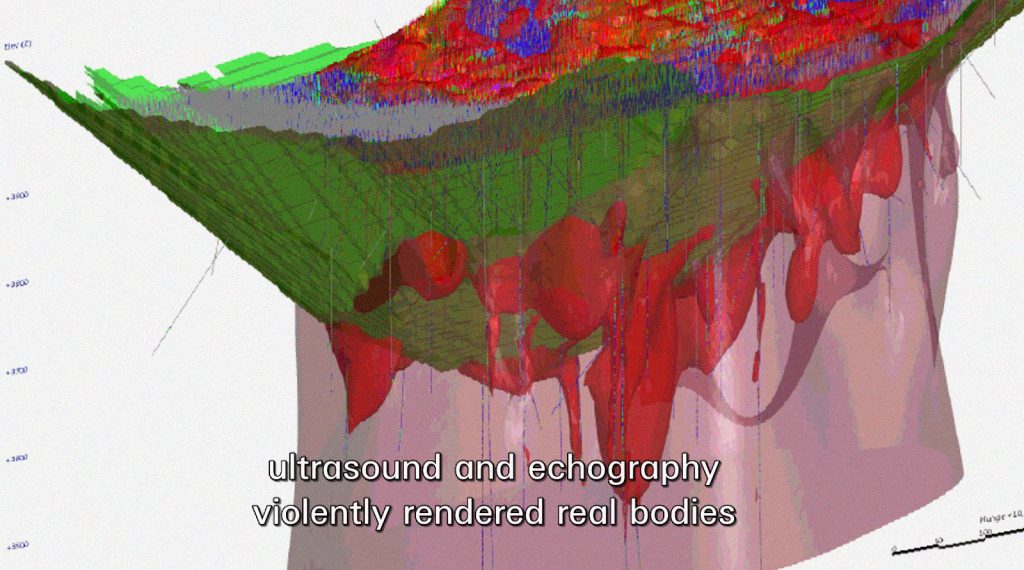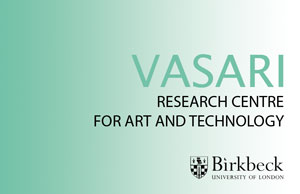
14 June 2019, 10:00 – 20:00, Goldsmiths, University of London
Building up or digging down, simulating more-than-human bodies, imagining new and fantastical volumes or managing resources, volumetrics are continuously figuring and refiguring life and living. From the fossil fuel industry to the so-called creative industries, computational practices are being deployed to imagine and materialise new volumes to exploit and inhabit. Computational arts practices such as 3D Scanning, Rendering and Animation, Augmented Reality and Virtual Reality have been a significant agent in shaping this volumetric turn. Consequently these new volumetric practices are in relentless dialogue with both the calculation and measurement of environments and the extraction and entertainment industries. This event seeks to explore critical volumetric practices capable of generating new political and affective ecologies and challenging dominant forms of geopolitical and industrial volumetric power.
With this in mind Volumetric Ecologies brings together researchers, artists and theorists to investigate the implications and possibilities of volumetric imaginaries of environments. As part of the volumetric turn we explore more-than-human immersive technologies and the ways in which they figure environments across an expanded field of practice.
The workshop will critically reflect on the agency of computational arts practices as a significant force in shaping the volumetric turn. The evening keynote by Deborah Levitt will explore how the world-building capacities of animation and VR technologies bring into being new forms of cosmotechnics. This two day explorative forum presents a diversity of perspectives and practices which reimagine and recast the constructs of environment, bodies and mediated worlds through the articulation of volumetric practices.
Hosted by ICE, Computational Arts at Goldsmiths in partnership with the Vasari Research Centre for Art and Technology at Birkbeck, University of London. Organised by Helen Pritchard, Rachel Falconer and Joel McKim.
Event Structure
11.00am – 1.00pm: Volumetric Demo, chaired by Rachel Falconer (open to the public)
Demo and research as practice showcase providing an opportunity for the public to engage with current practice and research across the volumetric field. Including work by artists and practitioners tba.
1.00pm – 5.00pm: Workshop
6.30pm – 8.00pm: Volumetric Ecologies, Evening Keynote PSH LG01
Introduced by Helen Pritchard and chaired by Rachel Falconer
Deborah Levitt, The New School in Conversation with Joel McKim, Birkbeck, University of London.
Deborah Levitt, The New School
Living in the Pluriverse: Animation Philosophy, VR, and Experiments in Cosmotechnics
Understanding lives as media forms and media as life forms opens a way to address the most pressing of our contemporary challenges, in particular how to enable pluralism and promote ecological regeneration in the milieu of planetary computing. I counterpose “the world” as it served as a fundamental reference point for a tendency in film theory, often grounding claims of representational fidelity and ethical vocation, to the many worlds rendered in the pluriverse of animation. If for the former life functioned as an ontological problematic—what is life? what is death?—the latter compels us to think life in relation to world. Or, more precisely, lives in relation to worlds. In this view, life and world are co-emergent in each case, informed by the technical, material, and ethical procedures that constitute their milieux. The multiple ontologies of animated worlds enable us to imagine and experience vitality and liveliness as different types of qualities differently distributed across a world’s elements: figures, grounds, scales, rhythms, etc. Drawing on these animatic features, I describe how emerging media allow us to use world making to model various cosmotechnical life-worlds, and pose the question of how we might put these to work to imagine ecologically and socially diverse and sustainable futures.


